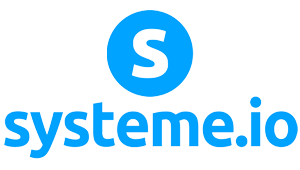Want to know what one of the biggest challenges most writers face in crafting their own original ezine articles (and other content as well, for that matter). It’s not coming up with ideas or outlining or creating a resource box.
It’s getting started.
That’s right, the opening paragraph is one of the biggest challenges most writers face. Once they get started writing – once they get in the flow – it’s much easier.
But, that start can be difficult. Especially if you write a lot.
So, I’ve put together a set of 20 “openings” (along with an example of each) you can use to quickly begin writing your own content.
There are three basic uses of this swipe file
- Use the openings as a FOUNDATION. In other words, use them simply as a starting point – a place to begin building your article. Instead of saying something boring (no offense if you’ve been doing this!) like “In this article I’m going to explain…”, use these openings to generate interest in what you’re about to say.
- Use the openings as a FOCUS. Every article needs to have an “angle”. An approach. A perspective. Some method of emphasizing a position in an interesting, original way. Writing is art. Every piece doesn’t have to be a masterpiece, but a good craftsman isn’t ordinary. Uniqueness counts.
- Use the openings as a FLOW. Your introduction should quickly make a smooth and seemless transition into the main bulk of your content. Said another way, your opening sentences should allow the reader to move easily to the information they are interested in consuming.
So, let’s take a look at 20 “openings” you can modify for your own use….
Note: In each of these templates, I will be using examples related to “tennis“. Why “tennis“? Because if these templates can work for the topic of “tennis“, then they can be used for ANY topic. Bottom line: these aren’t just “business-related“.
1. “There must be some reason why some _________ outperform others.”
This opening is all about informing the reader that some people have an advantage over others. And, in order to level the playing field, they need to follow the advice in your article.
Example: “There must be some reason why certain tennis players win more matches than others. Said another way, if two equally skilled tennis player compete … why does one get to go home a winner and the other a loser?”
2. “I’ve always been impressed with those who could __________.”
This opening allows you to mention a specific result that is desired to, not only you, but the reader as well. Your article teaches the person how they too can experience the desired result.
Example: “I’ve always been impressed with those who could hit a backhand winner on the run. It never came easy to me and I have marvelled many times when others seem to hit that shot so effortlessly. Then, I figured out their secret…”
3. “Do you find yourself _________?”
This opening is a good one because it allows the reader to identify with what you’re writing about. When they say “yes” to your question, then they know the article is for them … and they’ll read on to discover what they can do about the problem they face.
Example: “Do you find yourself double-faulting a lot? For years I gave away point after point – usually in critical times during my matches – by hitting into the net or just beyond the service box. Finally, I paid for a lesson from the local pro and this is what he taught me…”
4. “Many _________ have the erroneous belief that if they ___________”.
This opening can be used to dispel a myth, point out a misconception, or rule out a mistaken belief. The main point is to correct some wrong-thinking, replacing it with a correct alternative.
Example: “Many club level players have the erroneous belief that if they can hit their strokes harder they’ll win more points, games and matches. Unfortunately, harder doesn’t necessarily mean better. Here’s a better choice for an unbreakable serve… ”
5. “In order to make the best __________ decision for you, several factors need to be considered.”
This opening is great for articles written to help readers make informed decisions. The idea is to share a set of things the reader should consider prior to making a selection or choice.
Example: “In order to make the best racquet selection for you, several factors need to be considered. You want the racquet most suited to your game … the racquet that will enable you to perform at your peak level. Warning: Don’t buy a tennis racquet until you’ve answered the following five questions…
6. “There is some debate among ________ about the best way to _________.”
This opening is a good opportunity to share several different viewpoints and then explain what you considered to have the most merit among those perspectives. In most cases, there are a variety of methods taught pertaining to a particular topic – which should the reader follow? Why?
Example: “There is some debate among club tennis pros about the best way to improve your game. Is it repetition of drills? Playing against better competition? Implementing a strategy? Here’s what I’ve done to personally go from 3.0 to 4.0 in less than 12 months…”
7. “I’m sure by now you are well aware that _________ . What you may not be aware of is ________ .”
This opening allows you to build upon something that is already well known among your readership. You can share an advanced tactic, list additional ways to do something, reveal some hidden secret or expand upon the concept in some way.
Example: “I’m sure by now you are well aware that you play better with certain racquets than you do others. What you may not be aware of is that you can also improve your play with certain racquet STRINGS. Here’s how…”
8. “Can you imagine a car without a steering wheel or a stereo without speakers? That’s what many ________ are like. They are incomplete. Here are 10 things… “.
This opening can be used to lead the reader into content revealing various resources that they should possess in order to be successful in their pursuit. Point out things that are typically missing and things that are “optional” but highly recommended.
Example: “Can you imagine a car without a steering wheel or a stereo without speakers? That’s what many tennis players are like when they hit the courts. They are incomplete. Here are 10 things you should carry in your tennis bat to every match…”
9. “Sometimes in order to succeed we need to learn how not to fail. There are many things you should do to succeed in _______, but there are also some things that you should NOT do…”
This opening launches into any kind of article that is used to point out mistakes to avoid in pursuing a topic related goal.
Example: “Sometimes in order to succeed we need to learn how not to fail. There are many things you should do to succeed in tennis, but there are also some things that you should NOT do…”
10. “If you’re tired of _________ , then here’s what you need to do in order __________. “
This opening is a perfect intro the classic “problem/solution” article. You identify a common problem that likely has the reader frustrated and then you launch into an article that provides a solution.
Example: “If you’re tired of running out of energy late in the 3rd set of your matches, then here’s what you need to do in order to finish strong with plenty left in your tank…”
11. “The importance of _______ is talked about all the time. But is it really THAT important?”
This opening is a nice option for any article that wants to offer another perspective on a common view within your market. Whether it is agreeing with a view and then explaining how to accomplish it, or disagreeing with the view and then explaining why, this is a nice opening to garner attention.
Example: “The importance of a big serve is talked about all the time. But is it really THAT important at the club level? There are at least three ways to out-serve your opponent without overpowering them that are even more effective…”
12. “One of the most interesting __________ I’ve ever seen…”
This opening is a perfect introduction to any kind of “case study” article that highlights some method of achieving a desired result. If you are going to share an example (and possible explain that example) of what works effectively, this is a great way to start the article.
Example: “One of the most interesting drills I’ve ever seen for doubles is having two teams line up opposite each other midway through the service box and hit nothing but volleys back and forth as hard as possible.”
13. “Perhaps the question I get asked the most about __________ is…”
This opening offers a nice setup for any article that answers a frequently asked question. Use it to reveal what the question is and then move quickly into the main body of your article.
Example: “Perhaps the question I get asked the most about tournament tennis is ‘where can I find tournaments to enter?'”
14. “Most of us are familiar with the story of __________”.
This opening allows you to illustrate the point of your article by using a familiar story such as a fairy tale, movie plot, television show storyline, etc. Opening with some sort of pop culture reference is a great way to get the reader digging deeper into your article.
Example: “Most of us are familiar with the story of David And Goliath. You know the drill: little David pulls out a sling and a stone and down goes big Goliath. It’s been my experience that every tennis player has a Goliath; some giant of a player who seems virtually unbeatable. Want to know how to pull out your racquet and slay the giant? Here’s how… “
15. “The word ____________ is not a favorite of many people.”
This opening can be used to make a reference to a word or phrase that generally conjures up negative feelings and then launch into an article that (a) “looks on the bright side” of that word, or (b) explains how to avoid experiencing the effects of that word.
Example: “The phrase ‘double-fault” is not a favorite of most tennis players. And, like Murphy’s Law, they seem to happen at the worst possible moment…with a game, set or even match on the line. Here are 3 ways to avoid the dreaded double…”
16. “If there is one lesson that I have learned well as a __________, it is this…”
This opening allows you to share some lesson that you’ve learned related to the topic of your article. Specifically, it gives you the opportunity to share a singular “most important” insight based on your months/years of experience.
Example: “If there is one lesson that I have learned well as a tennis player, it is this: in order to improve your play, it is necessary to play those who are better than you…even though it will probably mean getting spanked in the process. Here’s why…”
17. “Never underestimate the power of ________” .
This opening is a great introduction to any article that wants to explain how some basic fundamental truth or practice should not be ignored, but rather embraced in order to achieve a desired result.
Example: “Never underestimate the power of a positive attitude on the court. I’ve seen players lose to lesser-skilled opponents over and over again because it’s in their heads that they can’t win against that particular opponent. So, how can you stay positive and even expectant on court? Try these 3 techniques…”
18. “When ________ happens, it can be an especially difficult and confusing time.”
This opening is a nice segway into an article that teaches what to do when something bad happens … how to solve, overcome or cope with some hardship or problem..
Example: “When an injury forces you off the courts for an extended period of time, it can be an especially difficult and frustrating time. However, there are some things you can do while you are healing to actually improve your game.”
19. “When is it time to ___________? Here are some indicators to look for… ”
This opening allows you to share some things the reader can look for in order to determine if it’s time to make some kind of change.
Example: “When is it time to quit playing singles and only play doubles? Here are some indicators to look for…”
20. “If you can __________, then you can ________.”
This opening is one of my all-time favorites because it allows you to set some simple criteria that, if accomplished, will produce a desirable result. HINT: The easier the qualification, the better!
Example: “If you can pick up a racquet and make contact with the ball, you can make part-time income during the summer as a tennis instructor by running your own one-day tennis clinics.”
So, there you have it, 20 great openings for your next ezine article.
Now, there’s no excuse to keep you from getting started.






Drew always comes up w/ great topics & useful resources included in each post. I have a section of shortcuts just for his topics… Thanks, Drew!
Thanks for the kind words Timothy!